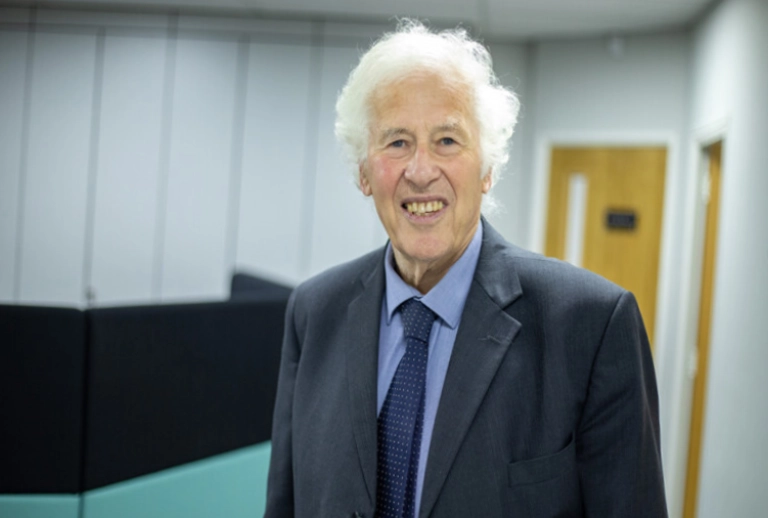Justin Creed, family law expert and trained collaborative lawyer at Lodders, explains what to expect in a divorce settlement and practical steps to take to protect your interests.

Divorce can feel like stepping into the unknown. Even when both partners want the process to be amicable, the question of “what am I entitled to?” is never far from anyone’s mind. The answer is not always simple, because divorce settlements are about more than just splitting assets – they are about fairness, practical needs and planning for the future.
Understanding what you might be entitled to can help you approach the process with clarity and confidence and ensure you take the right steps to protect your interest.
The starting point: all assets and income
In England and Wales, when a marriage ends, both spouses are expected to share fairly in the family assets and income. This includes:
- Property (the family home or any other property)
- Savings and investments
- Pensions
- Business interests
- Personal belongings, vehicles or valuable items
- Income, whether from work, dividends or investments
It is important to remember that the law does not set a strict formula – there is no automatic “50/50” split. Instead, the court aims to reach a settlement that is fair, considering everyone’s contributions and future needs.
Factors that influence a divorce settlement
Several key factors shape what you might receive:
- Financial needs and earning capacity
Courts consider both parties’ income, earning potential, and standard of living during the marriage. For example, a spouse who gave up work to care for children or support the other’s career will have different needs to someone who continued full-time employment.
- Length of the marriage
Longer marriages generally result in more equal sharing of assets. Shorter marriages may result in more limited entitlements, although the court will still aim for fairness.
- Contributions to the family
Contributions are not just financial. Caring for children, managing the household, or supporting a spouse’s career can all be taken into account.
- Future responsibilities
If there are children involved, the court considers ongoing responsibilities like education costs, childcare and everyday living expenses.
- Non-matrimonial assets
Assets brought into the marriage or inherited may sometimes be treated differently, especially if they have not been merged with shared finances.
Understanding different types of divorce settlements
There are several ways a divorce settlement can be structured, depending on your circumstances:
- Lump sum payments – a one-off payment from one spouse to the other.
- Property adjustments – one spouse may keep the family home, while the other receives a larger share of savings or investments.
- Pension sharing – pensions can be divided so both parties have a fair share for retirement.
- Maintenance (spousal or child support) – regular payments may be agreed or ordered for a set period, often to help the lower earning spouse transition. Often, settlements combine several of these approaches to balance fairness with practicality.
The importance of disclosure
A fair divorce settlement relies on both parties being honest about their finances. Courts take non-disclosure seriously, and failing to reveal assets can have serious consequences. That is why early legal advice is so important – your solicitor can help ensure everything is disclosed appropriately and that you understand what you are entitled to.
Why personalised advice matters
Every divorce is different. What one person might expect to receive could be very different from someone else in a similar situation. This is particularly true for people with higher net worth or business interests, or complex financial arrangements.
A specialist family lawyer can help you:
- Understand your legal rights and options
- Assess the value of all assets, including pensions and business interests
- Negotiate settlements that are fair and realistic
- Protect your interests while keeping costs and conflict to a minimum
Even if the divorce is amicable, professional guidance ensures that the agreement is sustainable and legally sound, giving both parties confidence as they move forward.
Practical steps you can take now
If you are thinking about divorce or already in the process, there are steps you can take to protect your interests:
- Make a full list of assets and liabilities – this includes property, bank accounts, investments, pensions and debts
- Keep records – documents like mortgage statements, payslips and business accounts can be crucial
- Consider your future needs – think about housing, children’s education and retirement plans
- Seek early advice – even a preliminary consultation can give clarity and prevent costly mistakes later
Moving forward with confidence
Divorce settlements can feel overwhelming, but understanding your rights and what you might be entitled to helps take away some of the uncertainty. With careful planning, clear information and professional guidance, it is possible to reach an agreement that is fair, practical and sustainable.
At Lodders, we regularly help clients navigate complex financial arrangements and achieve settlements that protect both their immediate needs and long-term security.
If you are facing divorce or want to understand your entitlements, our experienced Family team can provide confidential advice tailored to your circumstances. Knowing your options is the first step to moving forward with confidence. Get in touch with us today.
Contact usContact us
Need more advice?
For help with a legal problem or more information on any of our services at Lodders, please get in touch with our friendly team. You can contact us via the number or email address below, or fill in the form and we will get back to you as quickly as we can.

Contact a member of the team
Read more
Other news, insights and events







